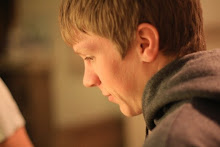(Disclaimer: This is post for my Italian class, so it's not quite as exciting as my other posts, but I tried to liven it up a little bit!)
So we've had six days of Italian class (totalling roughly 300 hours) and already I feel like I'm finally starting to get a grasp on the language...maybe...just a little bit. Three years of Spanish helps (some words are very similar, “diche” (Spanish) and “dice” (Italian) both mean “say”) but also hinders (I can't tell you the amount of times I've started counting “uno, dos, tres...”).
As I get more and more comfortable traveling around Rome, I've also started to enjoy speaking Italian to locals and shops and restaurants (see video below). Unfortunately, I estimate that I have the linguistic knowledge comparable to that of an average Italian six year-old. But I'm trying, and that's the important thing.
There have been two instances this past week in which I really wish I had a larger Italian vocabulary. The first was at the grocery store around the corner from our apartment. Being the graceful, coordinated person that I am, I walked around a corner and ran into a parked shopping cart. I wanted desperately to say “I'm sorry” and “let me help you.” Instead, I said “scusi” (“excuse me”) and went to help pick the groceries up. The man whose cart I ran into did not appear to want my help, or accept my terrible apology. He grabbed the last few things and headed away toward the checkout stand.
It was the first time that I felt my inability to speak the language really hurt me in Rome, and prevented me from being myself and doing what I wanted. It wasn't my favorite situation of the trip, but it did encourage me to look up a few phrases that I could use should this situation happen again. Next time this happens (I'd like to say it won't happen again, but really, who am I kidding) I can immediately throw out a “mi dispiace” (“I'm sorry”) followed quickly by a “io vi aiuterò” (“I'll help you”). While I may get the exact same reaction, at least I can say I tried, instead of just standing there like a goofy, helpless American.
The other situation I really wish I had had a more extensive vocabulary during was when I went for a 20 minute run and two and a half hours later realized I was lost. While it was cool to get out and explore my new surroundings, by the end of the run it was getting dark and raining. I asked a couple locals how to get back to the Campo De Fiori, where I could easily find my way home from. I didn't know how to ask “Where is” the Campo, but figured if I just said my final location and looked scared and confused they'd know I was trying to get there.
That was all well and good until I talked to somebody who knew exactly how to get back to the Campo, only problem is he explained it in Italian, and realized halfway through his explanation that I had no idea what he was talking about. He tried to gesture in the general direction and say things like “Piazza Navona” (which I had heard of) and “Piazza Popolo” (which I had not heard of). Fortunately, I was able to head off in the right direction, find the main street that took me toward the Campo De Fiori, and make it back to the monument in the middle, and ultimately my apartment. And, even though I was absolutely exhausted, was never happier to run up the four flights of stairs and lay down on the couch. Mission Accomplished!
Yesterday in class, we had our first introduction to directions, which is awesome and helpful, just a few days late. One of the first phrases we read would have been enormously helpful the other day:
“Scusi, mi sono perso. Sa dirmi dov'è il Campo de Fiori,” which translated means, “excuse me, I'm lost. Can you tell me where the Campo de Fiori is?”
We also learned basic directions like left and right (“sinistra” and “destra”) which I immediately remembered the nicest and most patient man in Italy telling me. “Continuare” (“continue”) also came up in our awkward conversation. A few more helpful words and phrases I've learned are: “E vicino?” (“Is it far?”), “attraversare il ponte” (“cross the bridge”-we live by about four), “lungo” (“alongside”) and finally, just the basic “strada,” or “street.”
I want to stress again, that for the most part, I've been able to get around pretty easily. But situations happen. I'm doing my best to soak up as much Italian as I can, so that I can be the most successful here, and brag about being tri-lingual when I get home. Now if you'll excuse me, now that this class-mandated blog is done its time to “vado alla festa” (“go out to a party”). That was one of the first, and most important phrases I've learned here so far.
David Orders Gelato
Subscribe to:
Post Comments (Atom)

Hey David! Cousin Lizzie here. So excited you are having a blast in Italy. Keep up the blog, I'll read :)
ReplyDelete